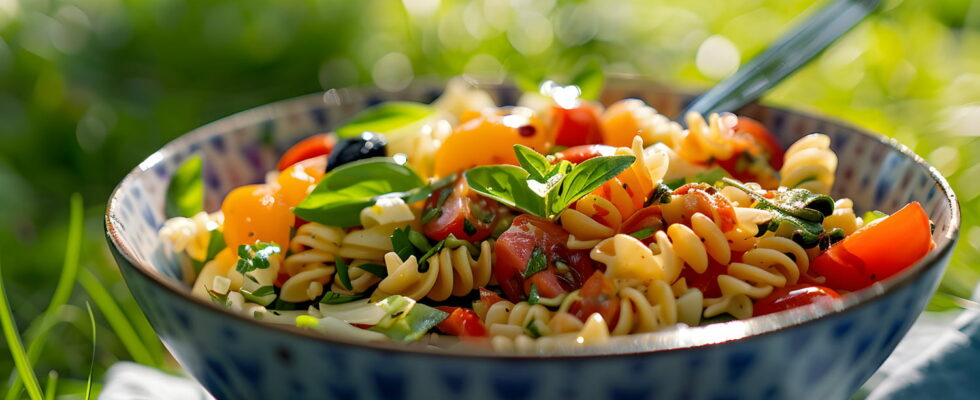“This combination can be a source of digestive problems, such as heaviness, pain and acid reflux.”
In absolute terms, no food should be banned. It is the combination of some of them, during the same meal, that can cause health problems. The digestion of these contradictory foods can be more difficult and lead to bloating, acid reflux, digestive problems and digestive pain.It can also result in less assimilation of proteins, vitamins, minerals and antioxidants by the body, therefore a lesser supply of nutrients to our cells, hence the appearance of fatigue.“, explains Raphaël Gruman, dietician-nutritionist.
Among the most sensitive associations, there are slow sugars (these are cereals (bread, pasta, rice, semolina, etc.), legumes (chickpeas, lentils, broad beans, beans, etc.), potatoes, sweet potatoes, etc.) with acidic foods which include vinegar, lemon, tomato sauce, white wine, mustard, ketchup, soy sauce, etc.When they reach the stomach, they disrupt the proper digestion of slow sugars by interrupting the secretion of ptyalin, the enzyme whose role is to break down starch into dextrin, maltose and glucose.explain . Therefore, this association can be a source of digestive problems, such as heaviness, pain and acid reflux.We will therefore avoid dishes such as pasta with tomatoes (with all due respect to the Italians!), sushi or lentils with mustard.
Digestion becomes difficult and a source of discomfort
So-called “first-degree” proteins (meats, fish, seafood and shellfish) mixed with starchy foods such as legumes and green bananas can cause digestive problems.Protein digestion blocks starch digestionnotes Raphaël Gruman. Separately, starches and proteins are nutrients that already require a lot of time and work for the stomach to break down. But when combined, for some people, digestion becomes difficult and uncomfortable.”. It is better to eat either starchy foods with vegetables, or a protein with vegetables and avoid dishes like steak and chips, hamburgers, hot dogs, couscous with meat or fish, carbonara or bolognese pasta, shepherd’s pie, etc.
Also be careful with raw fruit: it can be difficult to digest it when eaten during a meal that includes starchy foods. So no orange for breakfast when it includes bread, pastries or muesli. On the other hand, an orange, an apple or a kiwi is no problem when combined with eggs or cheese. The same goes for lunch or dinner: no raw fruit for dessert after potatoes, lentils or lasagna. In this case, it is better to opt for compote.
Finally, stimulants like coffee or tea do not mix well with milk.Tannins in coffee and tea inhibit the production of lactase, the enzyme that breaks down lactose, the sugar in milk. explains our interlocutor. This results in large, unbroken sugar molecules that ferment in the colon and cause gas, bloating and diarrhea.“.
